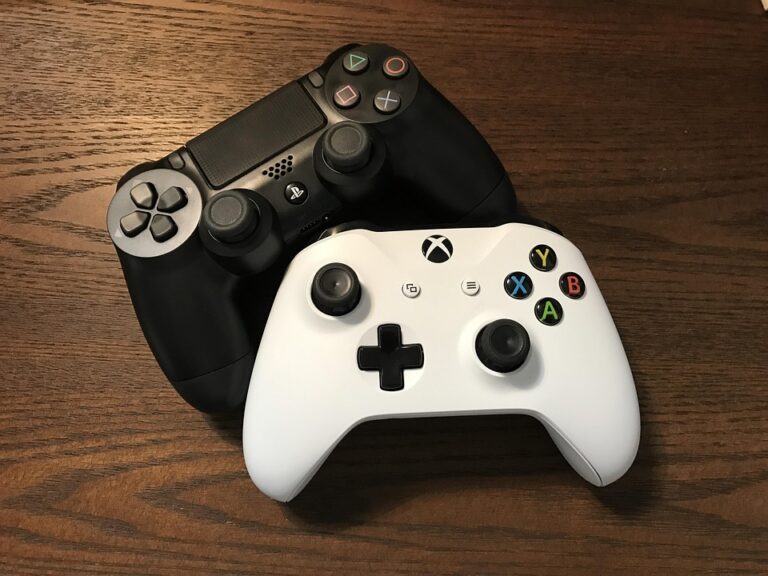Beyond the Gameplay: The Emotional Impact of Video Game Music
In the world of entertainment, few areas resonate deeply with audiences quite like video game soundtracks. The power of music in video games extends beyond mere auditory pleasure; it fosters emotional connections and enhances the overall gaming experience. As gaming continues to grow as a dominant form of media, understanding the role of soundtracks in stirring emotions within players has never been more crucial.
The Role of Music in Video Gaming
At its core, music serves as a narrative device in video games, providing context and elevating a game’s atmosphere. Video game soundtracks are designed to complement gameplay rather than distract from it, creating a seamless blend that immerses players in another world. According to a recent survey by the Entertainment Software Association, more than 80% of gamers believe that music significantly enhances their gaming experience. This statistic highlights how integral soundtracks are to modern video gaming.
Creating Emotional Resonance
Imagine the heart-pounding music of a climactic boss battle in a fantasy RPG. The orchestral swells and intense beats induce a sense of urgency, pushing players to their limits. In contrast, a soft piano melody during a character’s moment of introspection can evoke feelings of nostalgia and sadness. These soundtracks are crafted to evoke specific feelings, engaging players on a deeper emotional level.
One striking example is the haunting score of "Journey" composed by Austin Wintory. The Grammy-nominated soundtrack intertwines seamlessly with gameplay, allowing players to experience a range of emotions—from solitude to beauty as they traverse vast landscapes. Critics have often pointed out how the music in "Journey" is not just a backdrop but an essential narrative component that enhances the emotional weight of its story.
The Psychological Effects of Sound
The ability of music to influence player emotions can be attributed to psychological factors. Research indicates that certain musical elements can trigger emotional responses, leading to moments of joy, fear, or excitement during gameplay. A 2022 study highlighted that players’ heart rates fluctuated in sync with in-game music, demonstrating how soundtracks can amplify the adrenaline of high-stakes situations.
Enhancing Gameplay Experience
Video game soundtracks also contribute to player immersion. Having the right musical score helps set the pace and mood for various gaming scenarios. For instance, a fast tempo can increase tension during action sequences, while a slower tempo can provide players with time to reflect and strategize.
- Emotional Engagement: Sound drives emotional connection with characters.
- Immersion: Properly timed music enhances the gaming environment.
- Memory Association: Theme music can foster nostalgia.
The Evolution and Trends in Video Game Music
The landscape of video game music has evolved dramatically over the past few decades. Once limited to simple 8-bit tunes, today’s soundtracks feature orchestras, vocal talents, and collaborations with prominent composers. According to industry reports, the global video game music market is expected to surpass $100 million by 2025, driven by streaming platforms and live performances of game music.
The Rise of Live Performances and Concerts
In recent years, live concerts featuring video game music have gained popularity, drawing in crowds eager to experience their favorite scores in person. Events like "Video Games Live" and "The Legend of Zelda: Symphony of the Goddesses" showcase the art of video game soundtracks in a concert setting, reinforcing the idea that video game music transcends its original medium.
These performances not only highlight the artistic value of soundtracks but also foster a sense of community among fans. Attendees bond over shared experiences, celebrating the role that music plays in their favorite games.
Conclusion: A Form of Artistic Expression
Video game soundtracks are more than just background music; they are an essential part of gaming that enhances emotional resonance and immersion. As the industry progresses, the impact of music will undoubtedly continue to grow, shaping how players engage with their virtual experiences. The emotional depth provided by these soundtracks reveals the artistry and depth of video games as a legitimate form of storytelling.
For more insights into the connections between music and gaming, don’t miss our articles on The Impact of Music in Game Development and Top Video Game Soundtracks That Changed the Industry. For further reading on the music industry’s evolution, check out the International Game Developers Association Resource for additional statistics and insights into trends in game soundtracks.
Suggested Images
-
Image: A symphony orchestra performing a video game soundtrack.
Alt Text: Video Game Soundtracks orchestrated live performance.
- Image: A game scene with emotional music notes overlay.
Alt Text: Video Game Soundtracks enhancing player emotions.
By understanding the significance of video game music, players can appreciate not only the gameplay but also the intricate artistry that goes into creating a memorable gaming experience. The emotional impact of video game soundtracks indeed makes them a vital component of this dynamic medium.


